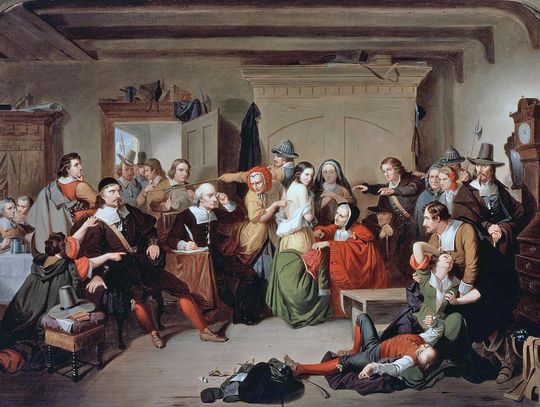Tworzenie ustaw nie jest zajęciem prostym. To trudna i wyczerpująca praca, wymagająca długich negocjacji celem wypracowania wspólnego stanowiska. W obecnym, podzielonym Kongresie działania ustawodawcze nie wymagają cierpliwości, wzajemnego szacunku, wytrwałości, umiejętności zawierania kompromisu, zręcznych negocjacji i kreatywnego przywództwa.
Przyglądając się pracom obecnego Kongresu Amerykanie są doskonale zorientowani, że jego członkowie więcej przebywają na urlopach niż w pracy i jeszcze rzadziej będą brać udział w obradach w 2014 r. Panuje przekonanie, że Kongres niezbyt chętnie podejmuje prace ustawodawcze. Obecny Kongres jest tak mało produktywny, że stanowi zagrożenie nie tylko dla naszej pozycji w świecie, ale i dla naszego dobrobytu.
Widząc Kongres, który nie ma niemal żadnych osiągnięć, Amerykanie odczuwają frustrację i zniechęcenie. Nie ma ustawy o znaczkach żywnościowych czy budowie szlaków wodnych; ważność ustawy farmerskiej przedłużono tylko o miesiąc; nie rozwiązano problemu limitu federalnego zadłużenia; nie uczyniono nic, by zmniejszyć przepaść między podatkami a wydatkami i w końcu nie rozwiązano kwestii reformy imigracyjnej.
Mamy nawet legislatorów, którzy wyrażają dumę z niewydajnego Kongresu, argumentujących, że im mniej rządu, tym lepiej dla obywateli. Większość Amerykanów nie zgadza się z tą opinią, czego dowodzi wykazywana w sondażach rekordowo niska popularność Kongresu. Amerykanie rozumieją, że Kongres nie podejmuje działań na rzecz rozwiązywania problemów i ta bezczynność przynosi realne szkody.
Cierpi na tym model amerykańskiej demokracji i rola Ameryki jako światowego lidera. Gazeta „The Wall Street Journal” stwierdziła nawet niedawno, że supermocarstwo nie potrafiące sfinansować pracy swego rządu i nie wypełniające swych finansowych zobowiązań nie może przewodzić innym. Amerykanie powinni pociągnąć Kongres do odpowiedzialności za bezczynność w rozwiązywaniu żywotnych problemów kraju.
Steve H. Tokarski, wydawca
Congress must do its job
Legislating is not easy: It is tough and demanding work, requiring many hours of negotiations in order to find commonality for solutions. With our current divided U.S. Congress there is a necessity for patience, mutual respect, persistence, compromise, artful negotiations, and creative leadership.
Yet as the American people look at their current Congress, they see that it takes more recesses than work and that the Congress has scheduled even more off-time in 2014. There is a belief that Congress is not willing to work at legislating. This Congress has been so unproductive that they have actually threatened our world standing and our domestic well-being.
When the American people look at what Congress has not done or accomplished there is great resentment and frustration. There is no food stamp reauthorization or waterway construction bill, only a one month extension of the all important farm bill has been passed; there is no solution to the debt ceiling problem; there has been nothing done about the gap between taxes and spending; unemployment benefits are unresolved; tax reform unresolved; climate change unresolved; and immigration unresolved.
We have legislators who take pride in how unproductive Congress has been arguing that the less the government does, the better. However most Americans do not agree with this philosophy given the Congress’s politically low standing in most recent polls. Americans understand that things that ought to be done are not getting done, and that there are real costs to this inaction.
The American democratic model and our role as a world leader are on the line and our political dysfunction is a serious handicap. The “Wall Street Journal” recently stated that a superpower that is not sure it can fund its government or pay its financial obligations is not in a position to lead. Congress must be held accountable by the American people for their failure to address the vital issues facing this country.
Steve Tokarski, Publisher











